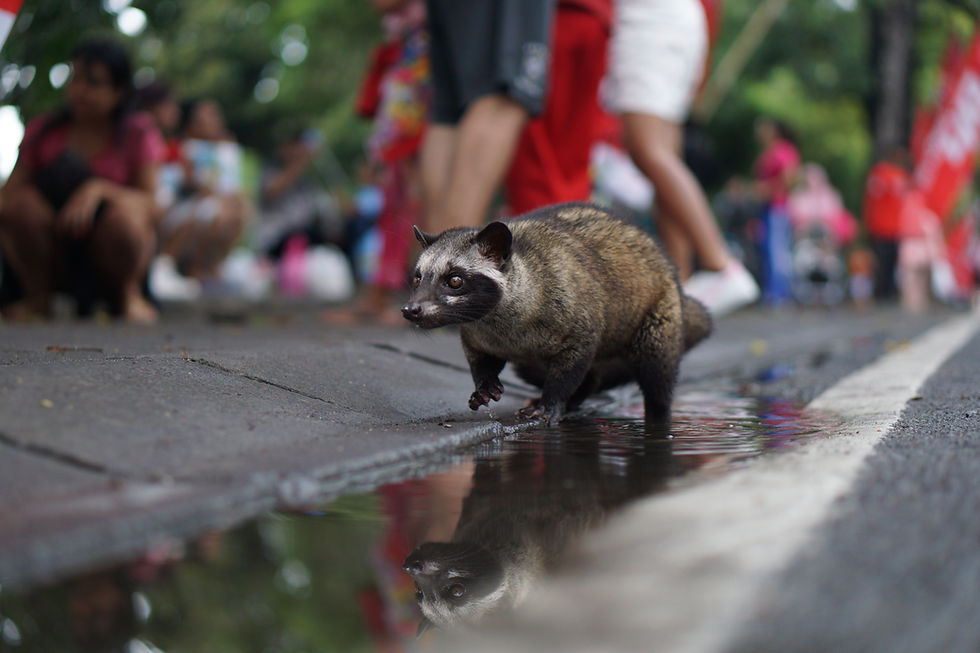Kopi Luwak: Controversies and Ethical Concerns
- Aravind James
- Oct 12, 2023
- 2 min read
Updated: Oct 13, 2023
When visiting Bali, exploring the local coffee culture and trying a cup of freshly brewed Bali coffee is a must for those who appreciate the world of coffee beyond the mainstream options. It's a unique and flavorful experience that adds to the rich tapestry of the island's culture and culinary offerings.
Kopi Luwak, is a type of coffee that is known for its unique and somewhat controversial production process. The name "Kopi Luwak" comes from the Indonesian words "kopi," which means coffee, and "luwak," which is the local name for the civet, a small, cat-like mammal found in the coffee-growing regions of Southeast Asia.

Unique Production Process
Kopi Luwak is made using coffee cherries that have been eaten and then excreted by civets. The civet eats the ripe coffee cherries, and during the digestion process, the beans pass through the civet's digestive tract. Enzymes in the civet's stomach are believed to break down proteins in the coffee beans, which may alter the flavor profile of the beans. Kopi Luwak is considered one of the rarest and most expensive coffee varieties in the world due to the labor-intensive production process and the limited supply. It is often marketed as a luxury or gourmet coffee.
Collection and Processing
After being excreted, the coffee beans are collected from the feces of the civet, cleaned, and then roasted. The roasting process is thought to eliminate any impurities that may have come from the civet's digestive system.
Kopi Luwak is often promoted as having a unique and smoother flavor due to the digestion and fermentation process it undergoes. It is said to have a lower level of bitterness and acidity. The taste can vary depending on factors such as the civet's diet and the processing methods used after collection.

Controversies and Ethical Concerns
The production of Kopi Luwak has faced ethical concerns and controversies. In some cases, civets are kept in captivity and force-fed coffee cherries, leading to animal cruelty issues. Ethical and sustainable production methods are important considerations for those interested in Kopi Luwak.
Criticism and Authenticity
There have been instances of counterfeit Kopi Luwak in the market, where regular coffee beans are sold as the genuine product. This has led to skepticism regarding the authenticity of some Kopi Luwak offerings.
While Kopi Luwak has gained popularity and curiosity among coffee enthusiasts for its unique production method and flavor profile, it's essential to consider the ethical and sustainability aspects of its production. When seeking to try Kopi Luwak, consumers are encouraged to choose sources that prioritize ethical and cruelty-free production methods to ensure that the coffee has been sourced responsibly and without harm to civets.



Comments